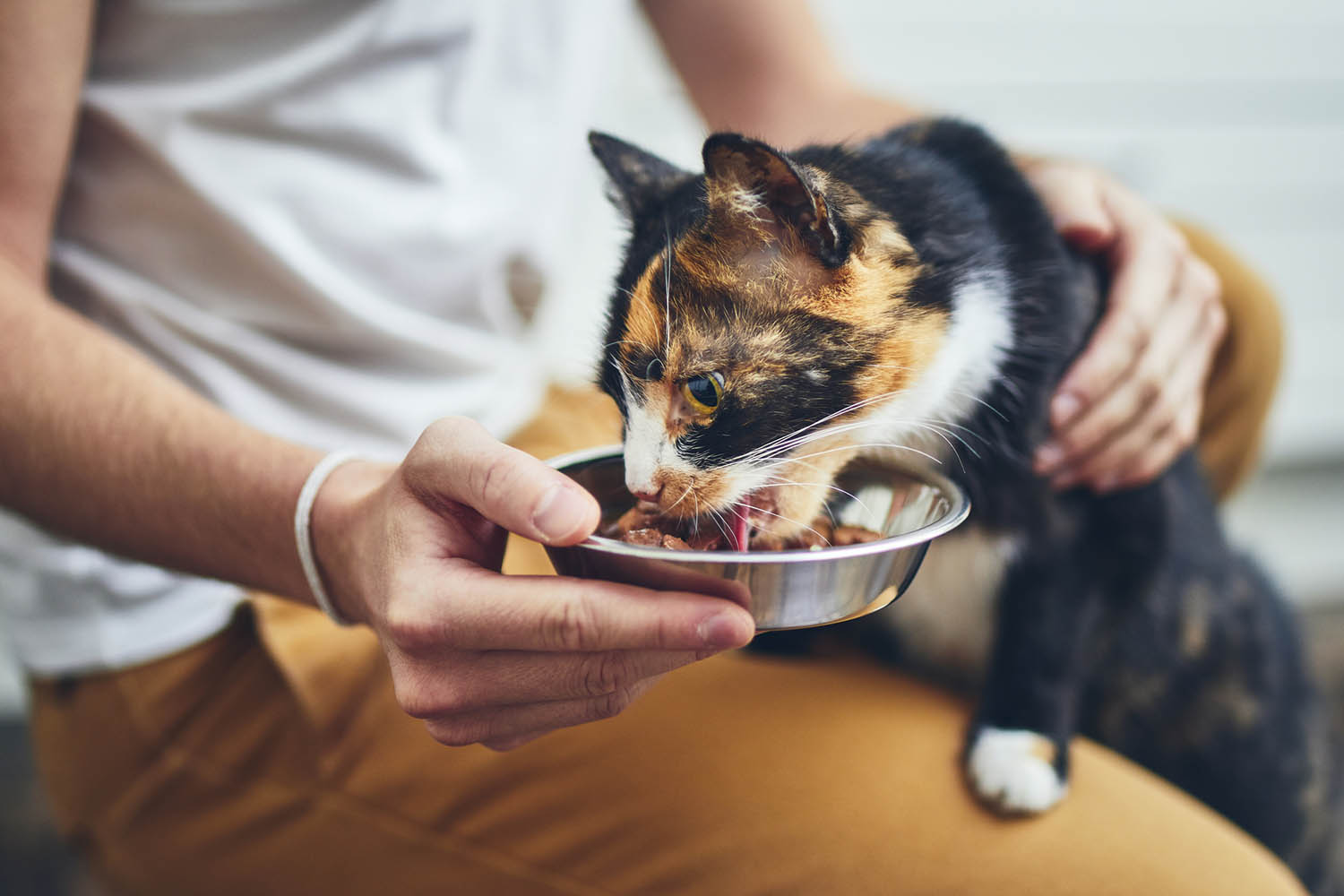Join the Pet Food Institute (PFI) as we continue our look at pet food, from A to Z. Click here to revisit our previous post on kitten nutrition.
One of the key components of supporting a pet’s nutrition is to provide them with a complete and balanced diet, which means each serving of pet food provides the more than 40 nutrients that are essential for cats and dogs in the proper amounts. Along with certain vitamins, minerals, and fatty acids, amino acids —such as leucine and lysine — comprise the important protein in a pet food recipe.
What Are Amino Acids?
Leucine and lysine are among a series of essential amino acids needed in cats’ and dogs’ diets. Amino acids are the building blocks of proteins, and, without the proper levels of each of the essential amino acids, the synthesis of proteins is impaired.
Cats and dogs produce some of these amino acids on their own but require others, such as leucine and lysine, to be added through diet. Both animal- and plant-based protein sources can deliver essential amino acids to pets
Amino Acids in a Pet’s Diet
Leucine and lysine, in addition to the other essential amino acids found in a complete and balanced pet food, help pets build and maintain muscles, bones, blood, organs, and skin and coat. Adult dogs and cats need essential amino acids to support healthy body systems, including the immune system. Kittens and adult cats require higher amounts of dietary protein than dogs and, therefore, certain specific amino acids are required in cat food recipes at higher amounts.
Proper levels of amino acids are also critical in puppy and kitten growth. It is estimated that puppies and kittens can have double the energy needs than those of an adult animal of the same breed. With these increased energy needs and steadily growing bodies comes increased minimum requirements of protein. In addition to being a source of energy for younger pets, protein and amino acids support weight gain and help develop and maintain muscles.
Is My Pet Getting the Proper Amounts of Amino Acids in His or Her Diet?
Pet food makers formulate recipes to meet the nutritional requirements established by the Association of American Feed Control Officials (AAFCO). While not a regulating body itself, AAFCO publishes nutritional standards that are adopted by state regulatory bodies. This includes establishing a minimum amount of essential amino acids, such as leucine and lysine, for both growing puppies and kittens, as well as adult pets.
While some pet owners are interested in making homemade pet food for their cat or dog, these recipes often lack the recommended amount of essential nutrients needed to keep pets healthy and should be avoided.
Pet food makers apply nutritional science to develop safe food that provides the nourishment dogs and cats need. When selecting a pet food product at the store, there are key pieces of information on the label with important details about the food’s nutrition, including the claim of “complete and balanced” on the package. Amino acids may not appear on a pet food label, since nutrients are delivered through the ingredients themselves, or will be listed if the pet food maker supplements the recipe to ensure proper levels for your pet’s health.
Learn more about the nutrients your cat or dog needs, and the roles amino acids, vitamins, minerals, fatty acids and carbohydrates play in your pet’s body.



